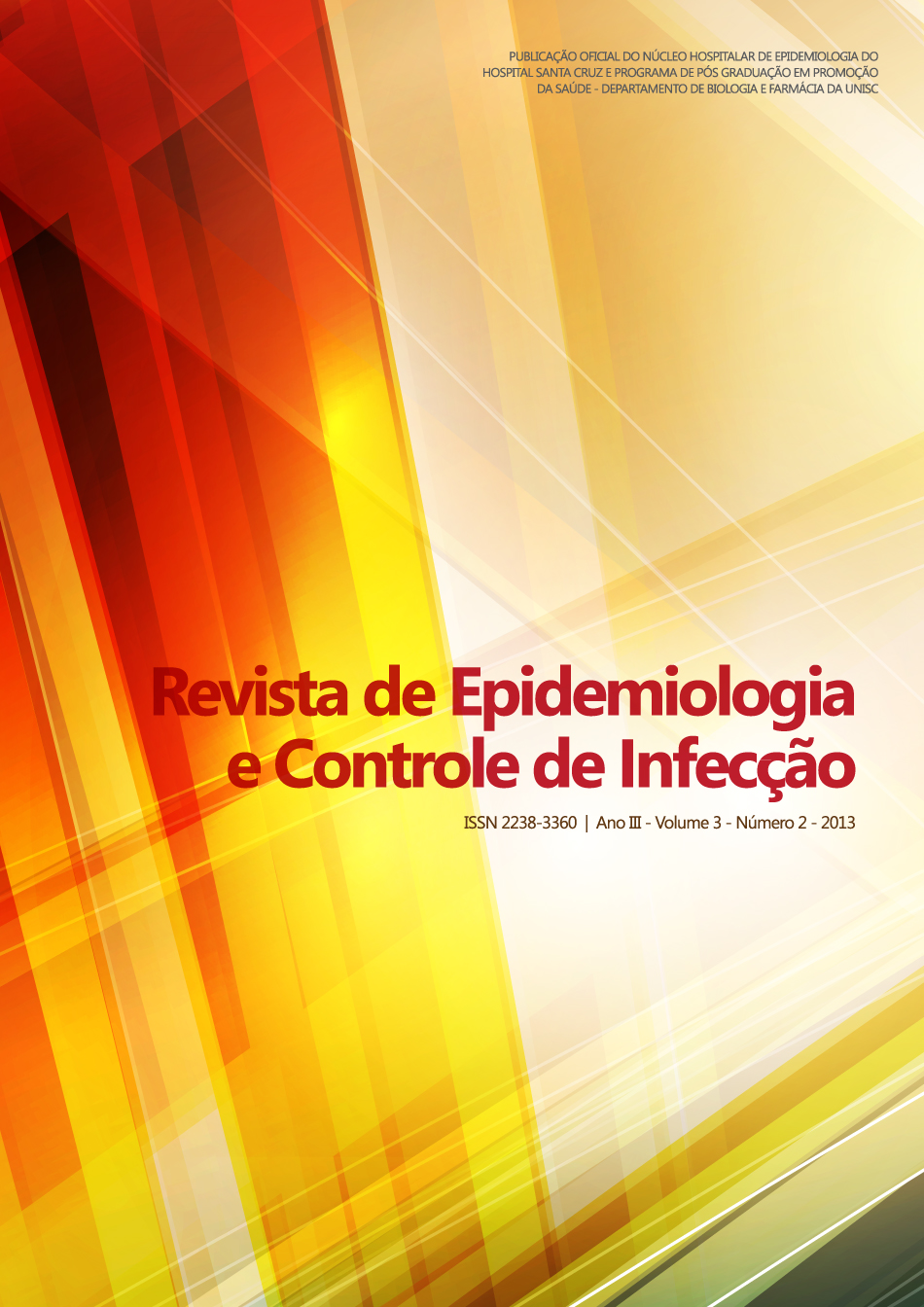Perfil epidemiológico das infecções hospitalares por bactérias multidrogarresistentes em um hospital do norte de Minas Gerais
DOI:
https://doi.org/10.17058/reci.v3i2.3235Resumen
Justificativa e Objetivos: Infecção hospitalar (IH) é um problema cada vez mais frequente e a presença de microrganismos resistentes gera impacto clínico e econômico. Este estudo objetiva determinar o perfi l epidemiológico das infecções hospitalares ocasionadas por bactérias multidrogarresistentes em um hospital do norte de Minas Gerais. Métodos: Foram analisadas fichas de notifi cação obtidas no Serviço de Controle de Infecção Hospitalar (SCIH) de um hospital do norte de Minas, referentes ao período de Abril de 2011 a Abril de 2012. Incluíram-se no estudo todos os casos de IH por bactérias multidrogaresistentes (MDR). Resultados: Ocorreram 44 casos de IH por MDR, sendo 19 (56,8%) em pacientes do sexo feminino. Os sítios de infecção por MDR mais frequentes foram: Infecção do Trato Urinário (40,9%) e infecção da corrente sanguínea (25%). A maior frequência dos casos ocorreu na faixa etária de 60 a 69 anos e no período de 0 a 15 dias de internação. As bactérias encontradas foram: Klebsiella pneumoniae (27,7%), Escherichia coli (23,4%), Acinetobacter baumannii (21,3%), Staphylococcus aureus (14,9%), Pseudomonas aeruginosa (6,4%), Enterobacter sp (2,1%), Morganella morganii (2,1%) e Burkholderia cepacia (2,1%). O mecanismo de resistência mais frequente foi a produção de betalactamase de espectro estendido. Nas IH por MDR houve maior ocorrência de procedimentos invasivos que nas IH por bactérias não MDR [OR 3.7 (IC 95%: 2.02–4.03)]. Conclusão: A prevalência de infecção por MDR no período estudado foi de 11.6%. É importante a detecção e o controle da disseminação de microrganismos MDR por seu impacto na morbidade e sobrevida dos pacientes.Descargas
##submission.downloads##
Publicado
Cómo citar
Número
Sección
Licencia
The author must state that the paper is original (has not been published previously), not infringing any copyright or other ownership right involving third parties. Once the paper is submitted, the Journal reserves the right to make normative changes, such as spelling and grammar, in order to maintain the language standard, but respecting the author’s style. The published papers become ownership of RECI, considering that all the opinions expressed by the authors are their responsibility. Because we are an open access journal, we allow free use of articles in educational and scientific applications provided the source is cited under the Creative Commons CC-BY license.


